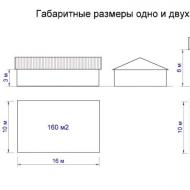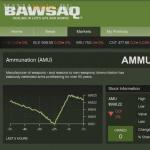
Sample procedure for accounting policies. Order of the accounting policy of the enterprise. Accounting policy for accounting
AND accounting reporting in Russian Federation", approved by the Order of the Ministry of Finance of the Russian Federation dated July 29, 1998 No. 34N, the Regulation on accounting" Accounting Policy of the PBU1 / 2008 organization, approved by the Order of the Ministry of Finance of the Russian Federation of October 6, 20 08. No. 106n, and other regulatory documents in order to comply with Organizations During the reporting year, a unified methodology for reflection in accounting accounting and fulfillment of tax legislation in accordance with the Tax Code of the Russian Federation
Order:
1. To approve the accounting policies for the purposes of accounting and tax accounting of the enterprise in 2013
Accounting Policy LLC ** x "for accounting purposes
1.7. Upon compliance with the status of a small business entity, the company may not apply the Regulation on accounting "Accounting for payments for the income tax" PBU 18/02 (p. 2 PBU 18/02).
1.8. This accounting policy is not exhaustive. When making B. legislative actsregulatory accounting, significant changes appropriate changes are made to the company's accounting policy. Also, the company may include additions to accounting policies as new facts arise. economic activitywho did not have the seats earlier for a more reliable assessment of the financial situation and financial results of the enterprise.
2. Documenting business operations.
2.1. The basis for records in accounting registers is primary documents that fix the commissioning operation. Applied primary documentsIncluded in the composition of OKUD. In the case of the application of non-type documents, the form of each document is approved by the head.
2.3. Property, obligations and economic operations for reflection in accounting and reporting are estimated in monetary terms by summing up actually generated costs in the currency operating in the territory of the Russian Federation (in rubles).
2.4. In order to ensure the accuracy of accounting data and reporting, the inventory is held once a year as of December 31.
3. Accounting. Rules for assessing articles of accounting reporting.
3.4. Assets in respect of which the conditions provided for in paragraph 4 of accounting regulations "Accounting for fixed assets" PBU 6/01, and worth not more than 20,000 rubles. For a unit, reflected in accounting and accounting reporting in the composition of material and stockpiles. In order to ensure the safety of these objects in production or during operation, proper control should be organized. With the write-off of fully amortized fixed assets or their liquidation for other reasons, individual details (based on the conclusion of the Commission) come at a price. possible use With reflection on the debit of accounts of materials and credit account 91 "Other income and expenses". If it is impossible to posting individual parts (based on the conclusion of the Commission), these fixed assets are completely charged.
3.5. Reserve for all types of repair of basic production assets The company does not create and reflect the cost of restoring the facility of fixed assets in the accounting records of the reporting period to which they relate as expenses for ordinary species activities,
3.6. Accounting for intangible assets in the enterprise is carried out in accordance with accounting Regulations "Accounting intangible assets"PBU 14/2007, approved by the Order of the Ministry of Finance of the Russian Federation dated December 27, 2007 No. 153n.
Unit of accounting of intangible assets is an inventory.
3.7. The cost of intangible assets for a certain period useful use It is repaid by depreciation during their useful use. According to intangible assets with an indefinite useful life, depreciation is not charged.
Useful use period is expressed in the months during which the organization involves using an intangible asset in order to obtain economic benefits. Intangible assets for which it is impossible to identify useful life is considered intangible assets with an indefinite use. Determination of the useful use of an intangible asset is made on the basis of:
- the term of the organization's rights to the result of intellectual activity or means of individualization and the period of control over the asset;
- the expected period of use of an asset during which the organization involves obtaining economic benefits.
3.8. The choice of a method for determining the depreciation of an intangible asset is carried out by the organization based on the calculation of the expected receipt of future economic benefits from the use of an asset.
In the event that the calculation of the expected receipt of future economic benefits from the use of an intangible asset is not reliable, the size depreciation deductions This asset is determined by a linear way.
3.9. The accounting of material and production reserves in the enterprise is conducted in accordance with the Regulation on Accounting "Accounting for Logistics" PBU 5/01, approved by the Order of the Ministry of Finance of the Russian Federation of 09.06.2001 No. 44N. Inventory reserves are accepted for accounting at actual cost, materials include material values \u200b\u200bto the service life of up to one year, regardless of their value.
3.10. Material and production reserves, written off in production or implemented to the side, are estimated at the average cost.
3.11. The company does not create reserves for a cost reduction material values.
3.12. Accounting for the costs of appeal to reflect on account 44 "costs for sale" in the context of elements and cost articles.
Costs are taken into account reporting periodTo which they relate regardless of their payment - preliminary or subsequent. In accounting, costs are in total amount of primary accounting documents regardless of the tax and regulations established for the purpose of tax purposes. The costs of the enterprise for the transportation of goods are taken into account on account 44 "Sale expenses". Transportation costs are included without the cost of the residue coming to the balance of goods, which is calculated by a special calculation,
3.13. Expenses produced in estimated periodBut related to the following reporting periods are recorded in accounting 97 "Expenses of future periods" and are subject to attributable on the costs of production and circulation during the period to which they relate.
3.14. The accrual of property tax is reflected in the account 91 "Other income and expenses".
3.15. Financial investments, credit and loans. When departing an asset adopted by accounting as financial investments, its value is determined at the initial value of an accounting unit of financial investments (p. 26 PBU19 / 02). The costs of loans and loans are reflected in the reporting period to which they relate (paragraph 6 of PBU15 / 2008).
3.16. Long-term debt take into account the account 67 "Calculations for long-term loans and loans "in the composition of long-term debt without translation into short-term.
3.17. The company does not create reserves of doubtful debts on settlements with other organizations for products, goods, services.
3.18. The company does not create reserves upcoming expenses.
3.19. Unspiscated receivables I. accounts payableThrough which the limitation period has expired, is written off and refers to the financial results of the enterprise.
3.20. Revenues obtained in the reporting period, but relating to the following reporting periods, are recorded in detail and relate to financial results when the reporting period is on the onset of the reporting period.
3.21. Balance profit (loss) is a final financial result identified during the reporting period on the basis of accounting of all economic operations of the enterprise and the score of the balance sheets in accordance with this order and regulatory documents.
3.22. The use of retained earnings, the frequency and procedure of distribution is determined by the decision of the founders.
3.23. The organization presents accounting statements in the scope and for the forms provided for by the order of the Ministry of Finance of the Russian Federation of July 22, 2003 No. 67n.
Accounting Policy LLC * "X" for tax accounting purposes
4. Tax accounting at the enterprise is conducted in accordance with Tax Code RF and other regulatory documents.
4.1. Accounting for income from the sale of goods (works, services) for the purposes of taxation is recognized by the method of accrual (Art. 271 of the Tax Code of the Russian Federation). Accounting for expenses related to the activities of the enterprise for tax purposes is recognized by the method of accrual in the reporting period, to which it refers regardless of the actual payment time (Art. 272 \u200b\u200bof the Tax Code of the Russian Federation). This provision also applies to income from the sale of other property, as well as on non-revenue income and expenses.
4.2. Costs for the sale of goods, works, services are the cost in proportion to the income from the implementation obtained from the specified activities.
4.3. The write-off of raw materials, materials and goods used in the production of works "of services and the implementation of goods for the purpose of income tax is carried out according to the average value method (clause 8 of Art. 254, sub. 3 of paragraph 1 of Art. 268 of the Tax Code of the Russian Federation).
4.4. When implementing and other disposal of securities write off on costs valuable papers At the cost of the unit (clause 9 of Art. 280 of the Tax Code of the Russian Federation).
4.5. For the purpose of taxation of profits, a linear method of depreciation of fixed assets based on the timing of their useful use (Article 259 of the Tax Code of the Russian Federation) is used. In the event of the acquisition of used fundamental funds, the company has the right to determine useful life, taking into account the period of operation by previous owners (paragraph 12 of Art. 259 of the Tax Code of the Russian Federation).
4.6. The property worth up to 20,000 thousand rubles is included in the composition of material expenses in the total amount as it is commissioned.
4.7. The costs of repairing fixed assets are recognized in the reporting period in which they are implemented, in the amount of actual costs (Art. 260 of the Tax Code of the Russian Federation).
4.8. The cost of the purchase of goods, formed taking into account the costs associated with the acquisition of these goods (reflected in the accounting register on account 41 "Goods"), implemented in this reporting period and the amount of shipping costs (transportation costs) of purchased goods ( . 320 Tax Code). All other expenses, except nonealization expensesdefined in accordance with Art. 265 of the Tax Code of the Russian Federation, implemented in the current month, are recognized indirect expenses and reduce revenues from the implementation of the current month (Art. 32 of the Tax Code of the Russian Federation).
4.9. The costs of banking services are included in the composition of non-engine expenses (sub. 15 of paragraph 1 of Art. 265 of the Tax Code of the Russian Federation).
4.10. Tax accounting is conducted in accordance with the Tax Code of the Russian Federation in accounting registers with the addition of accounting registers that take into account income (expenses) not recognized for the purposes of taxation (Article 313 of the Tax Code of the Russian Federation).
4.11. The company does not create reserves for doubtful debts.
4.12. The company does not create a reserve for the upcoming costs of repairing fixed assets, pay for vacations, etc.
4.13. When forming in the previous tax period or in previous tax periods, the loss (losses) enterprise has the right to reduce the tax base of the current tax period The amount of the resulting loss in accordance with the procedure provided for by Art. 283 of the Tax Code.
4.14. Monthly advance payment tax payments are calculated in equal shares in the amount of one third of the actually paid quarterly advance payment for the quarter preceding the quarter, which pays monthly advance payments.
moscow 25.12.2014
on Approval of Accounting Policy for 2015
In connection with the entry into force of the Federal Law "On Accounting Accounting" and in order to ensure the unified principles of the organization of accounting in society, as well as guided by the Regulation on accounting "Accounting Policy of the Organization" (PBU 1/2008), approved by the Order of the Ministry of Finance of Russia From 01.01.2001 N 106n and other regulatory and legal acts on accounting order:
1. To approve new edition Accounting Policy for accounting purposes given in Appendix N 1 to this order.
2. To approve a new editorial board for tax accounting purposes given in Appendix N 2 to this order.
3. To establish that the data of the accounting policies for accounting and tax accounting are applied from January 1, 2015.
4. Control over the execution of this order impose on itself.
CEO //
application
to the order of the UP-2015 dated 25.12.14
POSITION
about accounting policies
For accounting purposes for 2015
General provisions
1.1 Accounting is conducted in accordance with the Federal Law "On Accounting" of 01.01.2001. N 402-FZ with changes and additions, accounting provisions, accounting accounts plan for financial and economic activities of enterprises and instructions for its use, approved by the Order of the Ministry of Finance of the Russian Federation of October 31, 2000 N 94n with changes and additions, PBU, and also based on other existing regulatory documents on accounting and reporting of the Russian Federation.
1.2 During 2015, accounting of property, commitments and economic operations is carried out in the method double recording In accordance with the current accounting accounts of the financial and economic activities of enterprises and instructions for its application, approved by the Order of the Ministry of Finance of the Russian Federation of 01.01.01 N 94N.
2.2 Registration of primary accounting documents is made in accordance with the unified primary forms accounting documentation, approved by the Resolutions of the State Statistics Committee of the Russian Federation and the Ministry of Finance of the Russian Federation. In the absence of relevant unified form Applies forms of documents containing mandatory detailsspecified in paragraph 2 of Art. 9 of the Federal Law "On Accounting".
2.3 The data contained in the primary documents adopted to account in a timely manner and accumulates in accounting registers and is postponed quarterly to accounting reports. Accounting registers contain mandatory details provided for in paragraph 4 of Article 10 of the Federal Law "On Accounting".
2.4 Making corrections in cash and bank documents is not allowed. In the rest of the primary accounting documents Corrections can be made only in agreement with those who have compiled and signatured these documents, which must be confirmed by the signatures of the same persons, indicating the date of making corrections.
To monitor and streamline data processing economic operations Based on primary accounting documents, consolidated accounting documents may be compiled.
Primary and summary credentials can be drawn up on paper and machine media.
2.5 Primary accounting documents, accounting registers, accounting reports are subject to mandatory storage in accordance with the terms established by the nomenclature of cases subject to the archive. Responsibility for ensuring the safety of primary accounting documents, accounting registers, accounting reporting and timely transmission to the archive is assigned to the head of the enterprise.
The storage time documents are calculated from January 1 of the year following the year of the end of the execution of documents.
All documents are formed in the following folders:
· Cash documents (Parcel and consumable cash orders, wage payments) with a shelf life for 3 years.
· Bank documents (bank statements with applications for each calculated (currency) bank account) with a shelf life for 3 years.
· Expense reports with a shelf life for 3 years.
· Securities (securities purchase and sale agreements, including all additions and applications to them, acts of receiving transmission, discharge from depository accounting) with a shelf life for 3 years.
2.7 Inventory procedures. Inventory of assets and financial obligations is made in accordance with the procedure enshrined in the Law on Accounting, as well as Methodical instructions on property inventory and financial obligations, approved by order MF RF.
In order to ensure the accuracy of accounting and reporting data, establish the duration of the inventory:
· Exchanges with debtors and creditors - before the delivery of annual reports as of December 31 of the reporting year;
· Objects of fixed assets, material values, capital investments, goods - before passing annual reporting As of December 31, the reporting year, at least 1 time in three years;
To approve accounting policies for tax purposes For 2018, the organization or IP must issue an order for accounting policies. We give a sample of an order about approving accounting policies for tax purposes that you can download and correct it for yourself.
Order about accounting policies
The Tax Code of the Russian Federation allows the taxpayer to choose a tax system (for example, LLC, USN or UNVD). However, to determine tax base According to the selected taxation mode, various options are provided from the application. Which of the permissible options to apply in practice - decides the leadership, accountant organization or IP. At the same time, the final decision should be written in accounting policies for tax purposes and approve accounting policy orders.
There are no standard samples of accounting policies, therefore, an order from the approval of accounting policies you can make up in an arbitrary form. Moreover, the accounting policies can be enabled or in the text of the order or and issue an application to it (order).
The newly created organization and those that appeared as a result of the reorganization must approve the accounting policies within 90 days from the date of state registration. Apply this document you need from the moment of creation new organization (Organization and legal successor). Such an order is established by paragraph 2 of paragraph 9 of PBU 1/2008. At the same time, any penalties for violation of the deadlines of accounting policies are not provided.
Adopted accounting policies can and should be applied consistently from year to year (Part 5 of Art. 8 of the Law of December 6, 2011 No. 402-ФЗ). That is, to argue every year a new document is not required.
Ordering Policy Order: Blank
Consider the option when an organization or IP does not want to describe the elements of policies directly in the order. Then the accounting policy itself can be prescribed in the appendix, and the order itself is to prepare as a separate (independent) document. Let us give a sample of the form of an order of accounting policies for taxation for 2018.
Sample order approval of accounting policies: OSN
Suppose the organization applies the general tax system (based on). Then, in the order of the organization's accounting policy, it is necessary to describe the methods of action, in relation to taxes with which the organization works during their activities (for example, income tax or VAT). For general System Taxation Sample Approval Policy Approval For taxation for taxation for 2018 may look like in our example. .
Sample order approval of accounting policies: USN
If an organization or individual undertakes applies a simplified tax system, then accounting policies for 2018 should also be approved by the order. Accordingly, if an organization applies UPN with the object of taxation "Revenues", in consideration of politics it is necessary to describe the elements related to "income". We give a sample of an order of approval of accounting policies in order to tax the Ltd. with the object "Revenues". In this order, accounting policies for 2018 are issued as an application to the order. .
If the organization applies the system taxation of USN With the object "Revenues minus expenses", then the order must be approved by accounting policies for 2018, in relation to this taxation regime. As an example, you can take an order, about the approval of policies with the object "Revenues".
Sample order approval of accounting policies: UNVD
If you use ENVD, then as an application to the orders you will have accounting policies for tax purposes regarding this tax regime. The order for the approval policy order for 2018 will be classic, and the policy itself, of course, will concern the special tax regime when paying a single tax on imputed income in 2018. .
Order number 54.
On the accounting policy of OJSC "Energoservis" for 2010
Date: 12/28/2009
Order:
1 To approve for 2010, the accounting policy of Energoservis LLC for accounting and tax purposes under annex to this order.
2 Regulations of the Accounting Policy are mandatory for all employees of Energoservice LLC responsible for conducting accounting and tax accounting, the preparation of primary documents.
3 Responsibility for organizing the execution of this order to be entrusted to the General Accountant LLC Energoservis (Konovalov O.V.).
Director ___________________ I.V. Sergienko
Appendix to Order No. 54 of 28.12.2009
Accounting Polit LLC "Energoservis" for 2010
1. Accounting policy for accounting purposes
|
Position of Accounting Policy |
Selected option |
Base |
|
Organization of accounting |
The organization's accounting is maintained as a structural unit headed by the Chief Accountant. |
p.2 st. 6 of the Federal Law of 11/21/1996 No. 129-FZ "On Accounting" |
|
Cost limit of fixed assets |
Do not relate to fixed assets and are reflected in accounting and reporting in the composition of material and industrial stocks assets worth not more than 20,000 rubles. |
clause 18 of the Order of the Ministry of Finance of the Russian Federation of March 30, 2001 No. 26N "On Approval of the Regulation on Accounting" Accounting for fixed assets "PBU 6/01" |
|
The method of accrual depreciation deductions for fixed assets |
· linear way (The initial cost is multiplied by the depreciation rate). |
clause 18, 19 of the Order of the Ministry of Finance of the Russian Federation of March 30, 2001 No. 26n "On approval of the Regulation on accounting" Accounting for fixed assets "PBU 6/01" p. 48 "Regulations on accounting and accounting reports in the Russian Federation" (App . Order of the Ministry of Defense of the Russian Federation of July 29, 1998 No. 34N.) |
|
Revaluation of the initial value of fixed assets |
· Not produced. |
clause 14, 15 of the Order of the Ministry of Finance of the Russian Federation of March 30, 2001 No. 26N "On Approval of the Regulation on Accounting" Accounting for fixed assets "PBU 6/01" clause 49 "Provisions for accounting and accounting reporting in the Russian Federation" (App . Order of the Ministry of Defense of the Russian Federation of July 29, 1998 No. 34N.) |
|
The method of accrual depreciation deductions for intangible assets |
· Linear way. |
paragraph 56 "Provisions for accounting and accounting reporting in the Russian Federation" (approved by the Order of the Ministry of Defense of the Russian Federation of July 29, 1998 No. 34N.) P. 29 PBU 14/2007 "Accounting for intangible assets" (approved by the order of the Ministry of Finance No. 153n from 27.12.2007) |
|
Revaluation of intangible assets |
· Not produced. |
p.17 PBU 14/2007 "Accounting for intangible assets" (approved by the order of the Ministry of Finance No. 153n dated December 27, 2007) |
|
Estimation of material and production reserves by organizations carrying out trading activities |
The costs of the workpiece and delivery of goods to the central warehouses (bases), produced until their transfer on sale to take into account in the cost of selling expenses (account 44 "selling costs"). |
section 6, 13 of the order of the Ministry of Finance of the Russian Federation of 09.062001 No. 44N "On approval of the accounting situation" Accounting for material and production reserves "PBU 5/01" p. 2.2. "Methodical recommendations for accounting costs included in the costs of production and circulation, and financial results at trade enterprises and catering"(App. Roskomtorg and the Ministry of Finance 04/20/1995 No. 1-550 / 32-2) |
|
Evaluation of the write-off of material and industrial reserves (including goods other than those taken into account on prior prices) |
· In the average cost. |
paragraph 58, 60 "Provisions for accounting and accounting reports in the Russian Federation" (approved by the Order of the Ministry of Defense of the Russian Federation of July 29, 1998 No. 34n.) Clause 16 of the Order of the Ministry of Finance of the Russian Federation dated 09.062001 No. 44N "On Approval of the Regulation on Accounting "Accounting of material and production reserves" PBU 5/01 |
|
Synthetic accounting of materials |
· At the actual cost of the preparation. |
An accounting account plan for financial and economic activities of organizations (appliance. Order of the Ministry of Finance of the Russian Federation of October 31, 2000 No. 94n) |
|
Write off the cost of repair of fixed assets |
· Immediately on the cost of production and circulation. |
p.72 "Provisions for accounting and accounting reporting in the Russian Federation" (approved by the Order of the Ministry of Defense of the Russian Federation of July 29, 1998 No. 34N) Instructions for the application of an accounting plan for financial and economic activities of organizations (approved by the Order of the Ministry of Finance of the Russian Federation from 31 October 2000 No. 94n) |
|
Writing off the general expenses |
· General expenses as conditionally permanent permanent D-TLC. 90 "Sales". |
Instructions for the application of accounting accounts plan for financial and economic activities of organizations (approved by the order of the Ministry of Finance of the Russian Federation of October 31, 2000 No. 94n) (explanations to the account 26) |
|
Evaluation of finished products shipped products |
Accounting finished products It is conducted at the actual production cost (account 40 "production (works, services)" not used). |
p. 59, 61 "Provisions for accounting and accounting reporting in the Russian Federation", approved. Order of the Ministry of Defense of the Russian Federation of July 29, 1998 No. 34N |
|
Distribution of sales costs |
· Sale expenses (account 44) are completely debited into the debit of account 90 "Sales". |
Instructions for the application of an accounting account plan for financial and economic activities of organizations (approved by the Order of the Ministry of Finance of the Russian Federation of October 31, 2000 No. 94n) (explanations to the account 44) |
|
Evaluation of goods in organizations retail |
· At purchase prices. |
clause 60 "Provisions for Accounting and Accounting Reporting in the Russian Federation" (approved by the Order of the Ministry of Defense of the Russian Federation of July 29, 1998 No. 34n) paragraph 13 of the Order of the Ministry of Finance of the Russian Federation dated 09.062001 No. 44N "On Approval of Accounting Regulations" Accounting for material and industrial stocks "PBU 5/01 |
|
Creating reserves at the expense of cost |
The organization creates reserves: · For the upcoming payment of vacations in the amount of 10% of the accrued wages; · For the payment of remuneration on the results of work for the year 5% of the accrued wages; · The payment of annual remuneration for long service is 5% of the accrued wages. |
clause 72 "Provisions for accounting and accounting reporting in the Russian Federation" (approved by the Order of the Ministry of Defense of the Russian Federation of July 29, 1998 No. 34n) industry guidelines for planning, accounting and calculation of the cost of production (works, services) |
|
Creating reserves due to financial results |
The organization creates reserves: · by doubtful debts; · For impairment of investments in securities. |
p. 45, 70 "Provisions for accounting and accounting reporting in the Russian Federation" (approved by the Order of the Ministry of Defense of the Russian Federation of July 29, 1998 No. 34n) |
|
Accounting for long-term debt on loans received and loans |
Debt for a period of more than 12 months is taken into account in the composition of long-term debt before the expiration of the refund period established by the Treaty borrowed money |
clause 6, 33 of the Order of the Ministry of Finance of the Russian Federation of 02.08.2001 N 60N "On Approval of Accounting Regulations" Accounting for loans and loans and costs for their maintenance "PBU 15/01" |
|
Accounting for additional costs related to obtaining loans and loans |
· Enabled in the costs of the period in which they are manufactured. |
p. 20 of the Order of the Ministry of Finance of the Russian Federation of 02.08.2001 No. 60N "On Approval of the Accounting Regulation" Accounting for loans and loans and costs for their maintenance "PBU 15/01" |
|
Accounting for interest (discount) on issued bills and placed bonds |
Interest (discount) on issued bills and placed bonds takes into account other expenses in the reporting periods, which include accrual data. |
clause 18 of the Order of the Ministry of Finance of the Russian Federation of 02.08.2001 No. 60N "On Approval of the Accounting Regulation" Accounting for loans and loans and costs for their maintenance "PBU 15/01" |
|
Method for determining the cost financial asset With his disposal |
· At the initial value of each unit of accounting of financial investments. |
clause 26 of the Order of the Ministry of Finance of the Russian Federation dated December 10, 2002 No. 126n "On Approval of the Regulation on Accounting" Accounting for Financial Investments of PBU 19/02 " |
|
Reflection in the financial statements of other income and expenses |
Other revenues are reflected in the profit and loss statement is deployed. |
clause 18.2 Order of the Ministry of Finance of the Russian Federation of 06.05.1999 No. 32N "On Approval of the Regulation on Accounting" Revenues of the organization "PBU 9/99" |
|
Application of PBU 18/02 "Accounting for income tax calculations" Small enterprises |
PBU 18/02 "Accounting for payment for income tax" Apply in a general manner. |
Sample Accountal Policy
To carry out accounting and tax accounting accounting Service The business entity develops a document in which the specific requirements and regulations of accounting and tax accounting applied in this enterprise are determined. To consolidate accounting and tax accounting rules, an economic entity order is drawn up.
Is there a typical form of order
The typical form of the order is absent, as a result of which this document is drawn up in arbitrary form. Provisions characterizing the accounting policy of a business entity can be issued by different options:
The order must contain mandatory details, including the date of drawing up, name, text, signatures and others.
Structure and content of the order to approve accounting policies
The structure of the order of approval of accounting and tax accounting policies is standard. The order contains a title, the signature of the head of the economic entity, part of the administrative and explanatory.
Conditions for the formation of a sample order according to accounting policies
Consider the formation of an order to approve the accounting policies on a specific example.
Zenitplyus LLC is registered as legal entity, has a certificate of state registration, the date of issuing which is 01.05.2017. Although Zenitplus LLC refers to small business entities, it plans to use such a taxation system as common (based).
The implementation of the financial and economic activities of Zenitplus LLC was started with this date. Before the formation of the accounting policy of Zenitplus LLC was launched, the management of the economic entity determined the following positions:
The order indicates the following information:
Download a sample of the order of accounting policies
How to make an order for approval and changing accounting policies
Each organization should have accounting policies (UE). And not one, but two: for accounting purposes and for tax accounting purposes. But before starting to work in accordance with this document, it must be approved by the order by the leader. How to make such a disposal, tell me in the article.
What is necessary accounting policies
It is no secret that accounting provisions provide for their rules for reflection of income and expenses, and the NK of the Russian Federation is its own. The methods chosen by the organization affect:
All this should be foreseen in charge for accounting and tax accounting purposes.
The requirement to compile such a document is regulated:
- for accounting purposes: paragraph 2 of PBU 1/2008 and part 1 Art. 8 of the Federal Law of 06.12.2011 No. 402-FZ "On Accounting";
- for tax purposes: Article 11 of the Tax Code of the Russian Federation.
- in two independent documents. In this case, each position should be approved by its order;
- one document with two different sections: one - on accounting, second - tax account. Then the order approval will be one.
- supplements in the UE are brought in the event of the emergence of new facts of economic activity from the organization, for example, in addition to the wholesale trade, it began to carry out services for the carriage of goods. Therefore, the procedure for taking into account income and expenses should be reflected in relation to a new type of activity. Supplements in the UE are brought at any time of the year and are applied since their approval (paragraph 10 of PBU 1/2008; Art. 313 of the Tax Code of the Russian Federation);
- changes in the organization can make for two reasons: if she decided to change the previously used method for accounting for the facts of its economic Life Or if appropriate changes are made to the legislation.
- federal and local laws and regulatory acts;
- types of taxation of the organization;
- a method of maintaining economic activities, etc.
How to approve, change or add a document
Each organization at the time of its creation should form the UE and apply it consistently from year to year. It is not necessary to form this document annually and approving this document. Order of the Accounting Policy, the head determines the date of commencement of its application.
The provisions on UE can be issued in one of two ways:
Consider samples of the administrative documentation regarding the UE.
On approval of UP

In the process of economic activities, the organization may arise the need to make supplements and (or) changes in accounting or tax pack, which are also approved by the order of the head.
On making changes to the pack

About making add-ons to

Next should be considered:
Changes are applied only since the beginning of the year or from the moment of entry into force regulatory Actwhich made adjustments to the norms of accounting and tax legislation.
Order Approval Policy for 2018: Sample
To approve accounting policies for tax purposes For 2018, the organization or IP must issue an order for accounting policies. We give a sample of an order about approving accounting policies for tax purposes that you can download and correct it for yourself.
Order about accounting policies
The Tax Code of the Russian Federation allows the taxpayer to choose a tax system (for example, LLC, USN or UNVD). However, to determine the tax base for the chosen taxation regime, various options are provided from the application. Which of the permissible options to apply in practice - decides the leadership, accountant organization or IP. At the same time, the final decision should be written in accounting policies for tax purposes and approve accounting policy orders.
There are no standard samples of accounting policies, therefore, an order from the approval of accounting policies you can make up in an arbitrary form. Moreover, the accounting policies can be enabled or in the text of the order or and issue an application to it (order).
The newly created organization and those that appeared as a result of the reorganization must approve the accounting policies within 90 days from the date of state registration. It is necessary to apply this document from the moment of creating a new organization (organization-legal acceptor). Such an order is established by paragraph 2 of paragraph 9 of PBU 1/2008. At the same time, any penalties for violation of the deadlines of accounting policies are not provided.
Adopted accounting policies can and should be applied consistently from year to year (Part 5 of Art. 8 of the Law of December 6, 2011 No. 402-ФЗ). That is, to argue every year a new document is not required.
Ordering Policy Order: Blank
Consider the option when an organization or IP does not want to describe the elements of policies directly in the order. Then the accounting policy itself can be prescribed in the appendix, and the order itself is to prepare as a separate (independent) document. Let us give a sample of the form of an order of accounting policies for taxation for 2018.

Sample order approval of accounting policies: OSN
Suppose the organization applies the general tax system (based on). Then, in the order of the organization's accounting policy, it is necessary to describe the methods of action, in relation to taxes with which the organization works during their activities (for example, income tax or VAT). With a general tax system, a sample of an order of approval of accounting policies in order for taxation for 2018 may look like in our example. Download an example of an order of approval of accounting policies for 2018.
Sample order approval of accounting policies: USN
If an organization or individual undertakes applies a simplified tax system, then accounting policies for 2018 should also be approved by the order. Accordingly, if an organization applies UPN with the object of taxation "Revenues", in consideration of politics it is necessary to describe the elements related to "income". We give a sample of an order of approval of accounting policies in order to tax the Ltd. with the object "Revenues". In this order, accounting policies for 2018 are issued as an application to the order. Download Sample Accounting Policy for 2018 (USN).
If the organization applies the USN tax system with an object "Revenues minus expenses", then the order must be approved by accounting policies for 2018, in relation to this taxation regime. As an example, you can take an order, about the approval of policies with the object "Revenues".
Sample order approval of accounting policies: UNVD
If you use ENVD, then as an application to the orders you will have accounting policies for tax purposes regarding this tax regime. The order for the approval policy order for 2018 will be classic, and the policy itself, of course, will concern the special tax regime when paying a single tax on imputed income in 2018. Download an order for accounting policies in UTI for 2018.
Order on approval of accounting policies
The compilation of an order to approve the company's accounting policy usually occurs at the stage of creating an enterprise or its reorganization. This document is the final part of the accounting policy process and serves as a signal to start its use.
What is accounting policies
Accounting policies are called a number of ways to conduct accounting and tax accounting used in the enterprise. Each organization has the right to draw up its own accounting policies that may depend on various parameters. The factors affecting it include:
There are three types of accounting policies enshrined in legislation:
- accounting policy for accounting purposes;
- accounting policy for tax goals;
- accounting policy for reporting on international standards.
What questions is solved by accounting policies
The list of problems that are affected in accounting policies is very extensive.
If we are talking about accounting, then there are work plans for accounts, ways to account for goods and materials, ways to distribute income, templates primary documents etc.
Accounting policy in terms of taxes is also diverse in its content. It determines:
Accounting Policy Procedure
The accounting policy of any enterprise is formed, as a rule, the chief accountant or person who fulfills his duties. It is this employee who determines its main provisions, and after the accounting policy is finally prepared, he coordinates it with the company's management and approves from the director. Then the preparation of the necessary regulatory documentation occurs, i.e. Order.
The role of order
The order for approving the accounting policy of the enterprise, being a kind of ligament between the legislation of the Russian Federation on accounting and tax accounting and the company's regulatory acts, is needed for internal use.
The order obliges all divisions of the company, regardless of their location, to execute the rules of accounting policies, and also appoints those responsible for controlling these persons.
The order is usually written by the secretary of the organization, he also gives it to the signature director.
The basis for the order
Each Order of the Organization must have the rationale and the basis for the issue. IN this case, as an rationale, you can enter the need to improve accounting and tax activities Enterprises (always written after the words "in connection with ..."), and as a reason to provide a reference to federal laws and acts.
How to form an order
Since 2013, the use of unified standard forms of primary personnel and accounting documents Canceled. Now any orders can be written in an arbitrary form or if the organization has its own document template - according to its sample.
At the same time, in any case, it is necessary that the order in its structure corresponds to certain parameters of the office work, and in the content included a number of mandatory information. These include:
Then there is the main part:
In conclusion, the order should appoint responsible for its fulfillment of employees. If the organization's administration believes that the order needs to be complemented by some other information, it should also be made in a blank by individual items.

How to issue a blank
The order, approving the company's accounting policy, may also be free: it is permissible to write on the usual clean sheet of paper or on the company's brand blank, both on the computer and in handwritten form.
After the content of the order is formulated, it must be subscribed to the director or its deputy / representative, which has a power of attorney for the right to sign documents (the use of facsimile, i.e. imprinted by any method, autographs are unacceptable, i.e. The signature must be "alive").
In addition, with the order under the painting should be familiar with the employees responsible for its fulfillment.
To certify the order with the help of stamp products (stamps and seals) for today it is necessary only in one case - if this rule is fixed in local regulatory paper organizations.
The order is always written in one instance, but if necessary, it is possible to make it additional, certified properly, copies. The compiled order must be registered in the accounting journal of the administrative documentation.
Is it possible to make changes
In order, it is permissible to make any changes, but only when they do not have a cardinal nature and concern only the small part of it. To unambiguously legalize such changes is called upon to make changes to the order. If the "global" document editing is required, it is better to cancel the previously relevant disposal, which has lost its relevance, and release a new one.
How much time and in what order to keep a document
Any orders should always lie in a strictly designated place, closed to access unauthorized persons. The duration of their storage depends on either the norms of the legislation of the Russian Federation, or on the provisions of the Company's internal regulatory acts.
Date order accounting policies
Approval of accounting policies - term, order and providing users
Accounting I. tax law Considers the company to form and approve their accounting policies in which the accounting methods are documented with which they will be guided during the conduct of accounting work. In the article offered to your attention, we will tell, in what form the accounting policy is issued, by whom and when it is approved and in what order is provided to users.
As you know from 01.01.2013 the main regulatory document Accounting legislation stands the federal law From 06/12/2011 N 402-FZ "On Accounting" (hereinafter - the law N 402-FZ), whose scope is applied to:
Commercial and non-commercial organizations;
state bodies, Organs local governments, government management bodies extrabudgetary funds and territorial state extrabudgetary funds;
central bank Russian Federation;
individual entrepreneurs, as well as on lawyers, established lawyers, notaries and other individuals engaged in private practice;
on the territory of the Russian Federation branches, offices and other structural units of organizations created in accordance with the legislation of foreign countries, international organizations, their branches and representative offices located in the territory of the Russian Federation unless otherwise provided international treaties Russian Federation.
Almost this means that any organization, regardless of its organizational and legal form and departmental affiliation, is obliged to account for accounting in accordance with the law N 402-FZ. The exception is envisaged only for the structural divisions of foreign organizations located in the territory of the Russian Federation, which have the right to conduct accounting. At the same time, they can refuse accounting on accounting only, subject to the maintenance of income and expenses and (or) other tax objects in accordance with the legislation of the Russian Federation on taxes and fees.
At the same time, all organizations are obliged to keep accounting in full, including companies that apply a simplified tax system, which indicates Article 6 of the Law N 402-FZ. Similar explanations on this score give the officials of the Ministry of Finance of Russia in the letter dated 02.27.2015.

Note. Access to full content this document limited.
In this case, only part of the document is provided for familiarizing and avoiding the plagiarism of our developments.
To access the full and free portal resources, you can just register and log in.
It is convenient to work in advanced mode to obtain access to the paid portal resources, according to the price list.
















